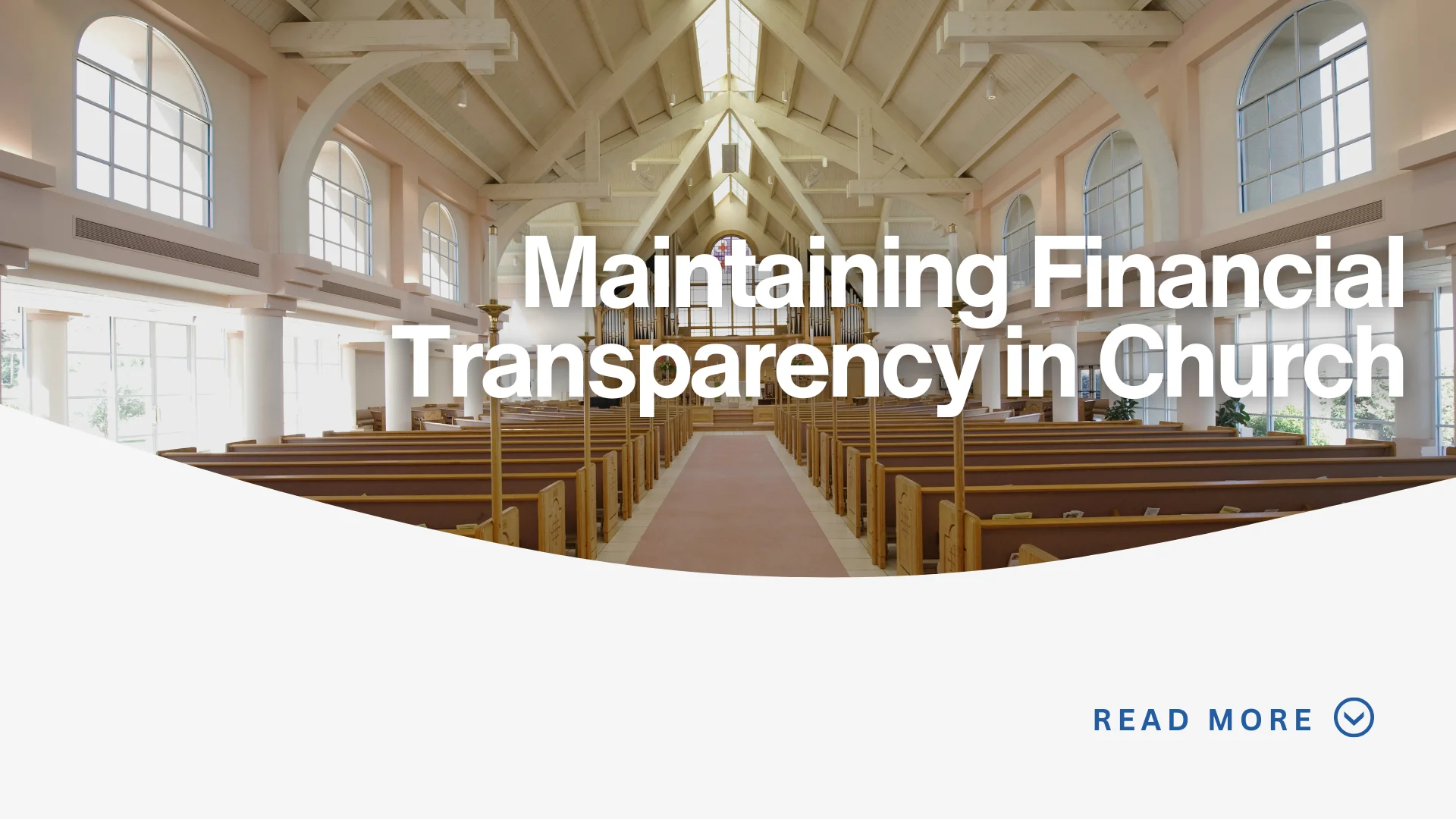
Churches operate on widely varying budgets. The median church budget is around $169,000. When you break it down, though, that represents a myriad of annual financial plans that span the gamut from $3,000 to $41,000,000.
Regardless of whether it’s in the thousands or the tens of millions, it’s important for churches to maintain financial transparency with their church budgets.
If you’re in a well-established church with healthy finances, chances are you already have rock-solid rules for money management in place. (Although even these require tweaks and updates at times.)
However, if you’re in a growing church or a church plant, you’re likely establishing those guidelines in real-time. Here are a few tips to help you do so in a God-honoring and effective way.
In his final instructions in his first letter to the Thessalonians, Paul says to “pray continually.” This is part of a larger directive to always give thanks and rejoice, and prayer in perpetuity is right there in the top recommendations for finding God’s will in life.
It is a round-the-clock policy that applies to churches just as much as individuals, too. In fact, prayer should be a major consideration even when dealing with nitty-gritty elements like church finance. As you consider how to set up or revamp your money management procedures, start, continue, and end with prayer.
It may feel cliche, but it’s necessary all the same. If you want to be in God’s will, you have to submit everything to Him, including your ministry’s finances.
Before you start buying finance tools or creating checks and balances, make sure you have the right team in place. Rules and regulations can provide structure and safety to your ministry’s money management, but they’re only effective if you have honest, trustworthy, and capable individuals to implement them.
Here are a few questions to ask yourself as you vet each person for your church’s financial administration team:
Use these questions to guide your search and screen your candidates.
As you search for individuals who answer the above conditions, be realistic about your options. If you can’t find someone within your church who can help with your financial planning and execution, it may be a better idea to look outside of your congregation for a solution that fits the bill.
This is where a third-party accounting firm like Chaney & Associates can help. We only work with churches and have provided financial consulting and bookkeeping, accounting, and payroll services for over 1,100 Christian ministries over the past 21 years. We can free you up to manage your ministry while we focus on your finances.
Once you have your team and third-party support in place, it’s time to create your church’s financial policies. Here are a few common best practices to consider:
This is once again an area where a third-party accounting firm can be a huge help. You can pass off difficult or dicey activities to them, trusting that they will take care of things without a conflict of interest or lack of skills or experience.
Finally, don’t be afraid to talk to your church about your finances. Learning to talk about money in church is a really important habit to cultivate amongst a congregation. It helps teach your church members about managing money in a Godly way and keeps lines of communication open regarding your own ministry money management.
While you don’t have to go into detail, offer explanations for what you’re spending your money on whenever appropriate. Use those annual reports (with clear and detailed financial elements) as a way to stay accountable with your church, too.
Churches regularly receive gifts that range from thousands to millions of dollars. These are serious chunks of change that require clear and open management processes to handle correctly.
As you establish checks, balances, and money management procedures, make sure to prioritize transparency. Pray, work with the right people, hire outside help, and establish the right policies to keep your ministry’s financial activity honest, open, and effective.
